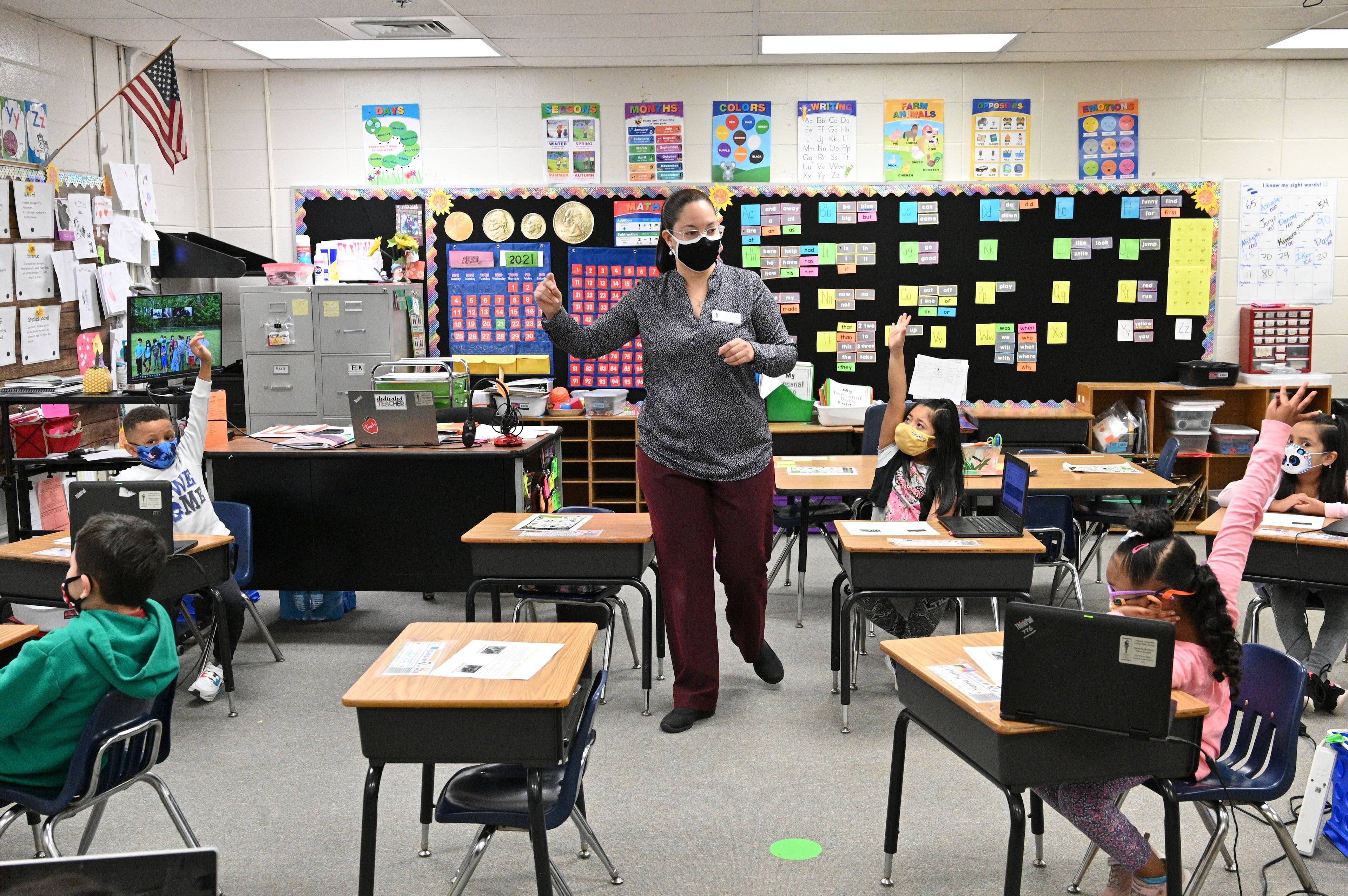1 year after Apalachee: 4 tips for dealing with school shooting anxiety

This time last year, two students and two teachers were fatally shot at Apalachee High School in Barrow County, with the event leaving behind a trail of injuries, tears and questions about how this could happen in a place so close to home.
Less addressed, however, is the feeling of anxiety across the state, which could have more lasting effects, with growing fears of another incident.
“I think we can normalize that this is scary,” Jody Baumstein told The Atlanta Journal-Constitution.
Baumstein, a licensed psychotherapist with Children’s Healthcare of Atlanta, knows that continuous anxiety about gun violence in schools affects children and adults alike. Unlike many unpleasant topics, she said, these emotions should be addressed and not stuffed down.
“We have a tendency to want to fix those moments when (children) are expressing a fear,” Baumstein said. “It’s really common to want to come in and say, ‘Don’t worry about that. You’re fine. It’s not a big deal,’ but that leaves them feeling really ashamed and very overwhelmed.”
Parents can be proactive about their child’s fears, as well as their own, she explained, and any anxieties can best be assisted using these guidelines.
1. Talk openly about it
Many parents have received hard questions from their children after incidents like Apalachee, and not known exactly what to say or do next. According to Baumstein, it’s already a good sign that they feel comfortable coming to you with questions, fears or concerns.
“A really good starting point is to establish this open communication,” she said. “We can do this by initiating conversations regularly, not just when things have escalated.”
After hearing out their questions, it is important to validate their concerns, even if you feel there is space for you to quickly assuage them.
“Really give them the chance in these conversations to take a lead, and then your job becomes just listening,” Baumstein explained. “Actively listening to genuinely understand what they have to say, and then reflecting it back to make sure you got it.”
2. Share ways to better manage fears
This could include coping strategies you have used or connecting your child with a family therapist. Baumstein suggests to make sure your child is ready to hear those ideas, as they may still be in a phase where they need to process their emotions.
3. Be practical
While fears about school shootings can feel urgent because of how present they are in national media coverage, it is important for you and your child to remember that school shootings are very unlikely.
“Of course we want to be reassuring because they’re scared, and that’s a valid concern,” Baumstein said. “We have to strike this balance where we can provide comfort by letting them know, despite media coverage, this is still statistically rare.”
Talk about the proactive measures your child can take when they feel fears about the possibility of a shooting at their school or somewhere else in their community. Go through their school’s lockdown drills with them, Baumstein suggests, so they know how to best keep themselves safe.
“We can explain to them that, yeah, those drills can feel really scary, but are put in place to help prepare us,” she said. “The big thing here is we really want to empower them, because what can feel so scary with stuff like this is that there is a sense of helplessness.”
Telling your child the truth is important, and while part of that is making sure they know how statistically rare these events are, they should also know how to protect themselves.
“We also don’t want to make promises that we can’t keep and we can’t guarantee that it will never happen here,” Baumstein said.
4. Don’t internalize the anxiety
It is very important to validate your child and let them feel their fears. However, Baumstein warns against letting these anxieties consume them — or you.
“Even as adults, a constant stream of notifications about scary things happening in the world do make us feel like we’re on high alert,” Baumstein said. “We can stay informed without being consumed.”
In moments where these fears seem uniquely pronounced for one member of your family, it might be time to turn away from the screens. Even if they are needed throughout the day, Baumstein strongly suggests putting them away before bedtime.
Regulating your emotions is a learned practice, she explained, and it’s something everyone can struggle with.
“What we can do is help them to kind of separate the feeling from what they are,” Baumstein said. “People will say, ‘I’m just an anxious person.’ No, you’re a person who sometimes feels anxiety, and there’s a really big difference.”


